Programa de Pós-Graduação em Ciências Biológicas (PPGCB)
 Web Content Display
Web Content Display
The Postgraduate Program in Biological Sciences (PPGCB) of the Federal University of Pernambuco was created in 1994, initially only at the Doctorate level, with the objective of meeting a great demand from students from various states in the Northeast Region who sought to complement their academic and technical-scientific training in the scope of Biological Sciences and related areas. In 2004, the Master's course was created, an initiative that greatly contributed to the definitive consolidation of the PPGCB as a regional reference in the training of highly qualified human resources in the areas of concentration and research lines of the program. The PPGCB has maintained, since its genesis, the focus on the multidisciplinary training of its graduates, an objective that has been achieved thanks to the availability of a diverse range of mandatory and elective subjects and an academic environment conducive to the development of innovative and interdisciplinary scientific researches, contextualized with the challenges demanded from the economic growth of the Northeast Region verified in the last decades.
The PPGCB aims to provide advanced scientific and technical training in the areas of Cell Biology, Molecular Biology, Biotechnology, Pharmacology, Physiology, Microbiology, Medicinal Chemistry and other related areas, leading its participants to obtain the degrees of Master or Doctor. The objectives of the PPGCB are: a) to train independent and innovative researchers, capable of formulating, planning and developing research projects aiming at the development of new technologies and products related to the Biological Sciences and related areas, through the enhancement of technical-scientific competence; b) to contribute for the generation of knowledge through advanced studies and research in the theoretical and applied fields of Biological Sciences and related fields; c) to consolidate itself as a reference and protagonist of scientific development in the Northeast and in Brazil.
The PPGCB has contributed a lot with its pioneering spirit for the dissemination of knowledge on themes directly linked to Biological Sciences. Currently, it is one of two programs at the Northeast Regionin belonging to the area of "Biological Sciences I" with a score of 5 in the 2013-2016 CAPES quadrennial evaluation (together with the UFRN Postgraduate Program in Bioinformatics). The qualitative evolution of the PPGCB in recent years can be evidenced through the following aspects: 1) Expressive number of students who seek to enter the program through regular selection processes: 472 candidates enrolled in the selections that took place in the quadrennium 2017-2020 (average of 118 per year), being 242 for the Doctorate course and 230 for the Master's course. In the same period, 91 doctoral places were offered (competition of 2.65 per place) and 85 places for the Master's degree (competition of 2.70 per place); 2) High uptake of postgraduate scholarships granted by the development agencies (FACEPE, CAPES and CNPq); 3) Improvement in the quality of publications, especially those linked to students and alumni of the program; 4) Expansion of internationalization actions, as measured by the increase in international collaborations and contributions; 5) Expansion of the number of projects developed in collaboration with consolidated research groups in several states; 6) Acting as an important nucleating agent through the insertion of its alumni in teaching and research institutions in different states of Brazil, mainly in the Northeast region.
The Program has also invested in the inseparability of Research-Teaching-Extension to expand the training of its students, with workshops in public schools in Recife and several cities in the interior of Pernambuco, in which students participate in transmitting the knowledge produced to the population, as well as listening and recording popular knowledge so that they can be scientifically investigated. Still, PPGCB professors and students have been engaged in actions and projects for scientific dissemination and popularization of science.
The PPGCB has also sought to include in its disciplines and dissertation and thesis projects the concepts linked to the UN Sustainable Development Goals (SDGs) of the "Agenda 2030" established by the United Nations General Assembly. PPGCB student dissertations and theses are directly associated with some of the SDGs, for example: 2 (ending hunger, achieving food security and improving nutrition and promoting sustainable agriculture), 3 (ensuring a healthy life and promoting good -state for all, at all ages), 6 (ensure the availability and sustainable management of water and sanitation for all), 8 (promote sustained, inclusive and sustainable economic growth, full and productive employment and decent work for all), 12 (ensure sustainable production and consumption patterns), 14 (conservation and sustainable use of the oceans, seas and marine resources for sustainable development), 15 (protect, recover and promote the sustainable use of terrestrial ecosystems, manage in forests, combat desertification, halt and reverse land degradation and halt biodiversity loss). These dissertations and theses have had as objectives: development of new types of healthier and low-cost production food using natural products, biodiversity and local means of production; development of techniques for preserving and extending the shelf life of foods using natural products; development of new drugs, of synthetic or natural origin, as well as new formulations, for the treatment of several types of diseases, such as cancer and Neglected Tropical Diseases group (ex. chikungunya, dengue, schistosomiasis, leishmaniasis, Chagas disease, Zika); evaluation of chemical and microbial contamination in water bodies, as well as suggestion of new water and effluent treatment strategies; development of techniques and products by stimulation and valorization of local productive arrangements and local biodiversity as a sustainable source of incomes; knowledge of biology, with a focus on biomolecules, marine and freshwater species, as well as development of techniques for sustainable breeding and cultivation; between others. In addition, PPGCB actions have focused on SDGs 4 (ensuring inclusive and equitable and quality education, and promoting lifelong learning opportunities for all) and 5 (achieving gender equality and empowering all women and girls).




